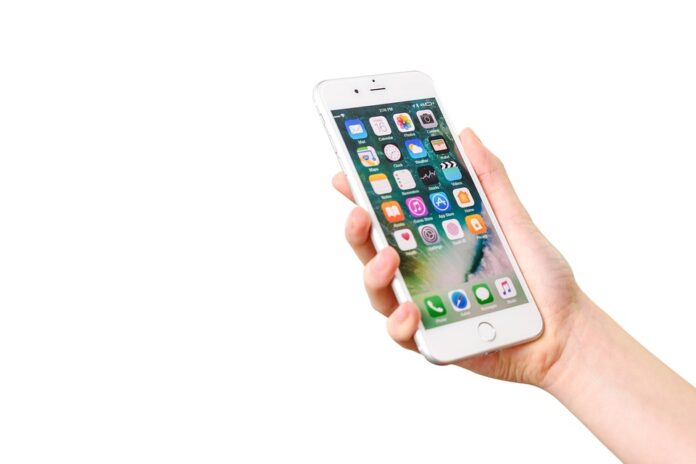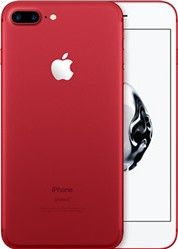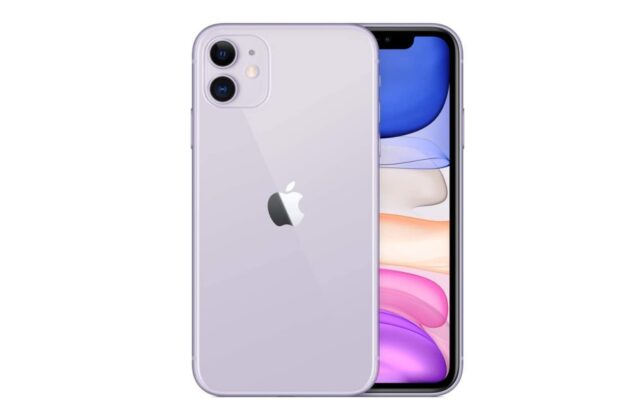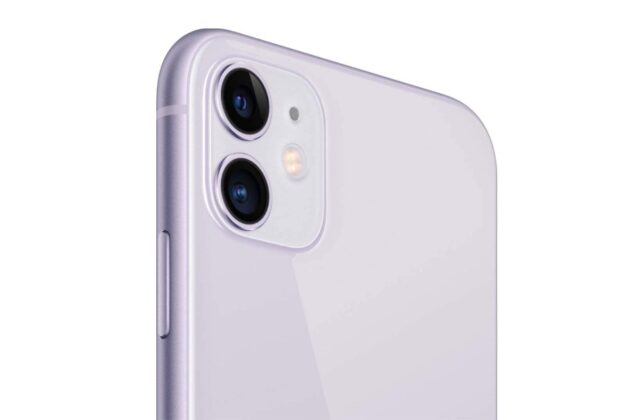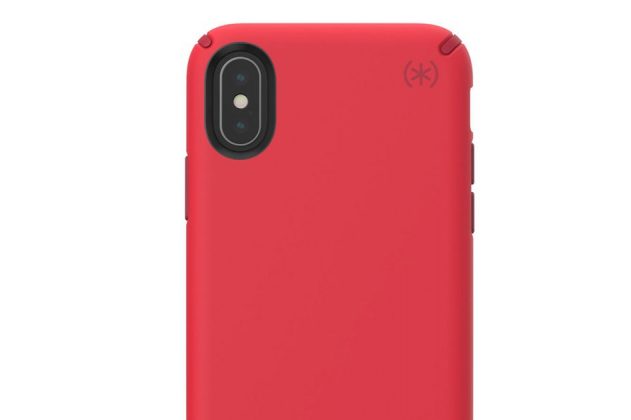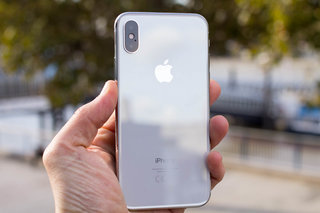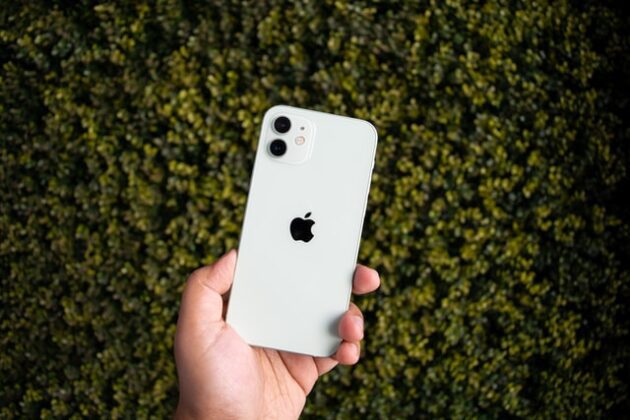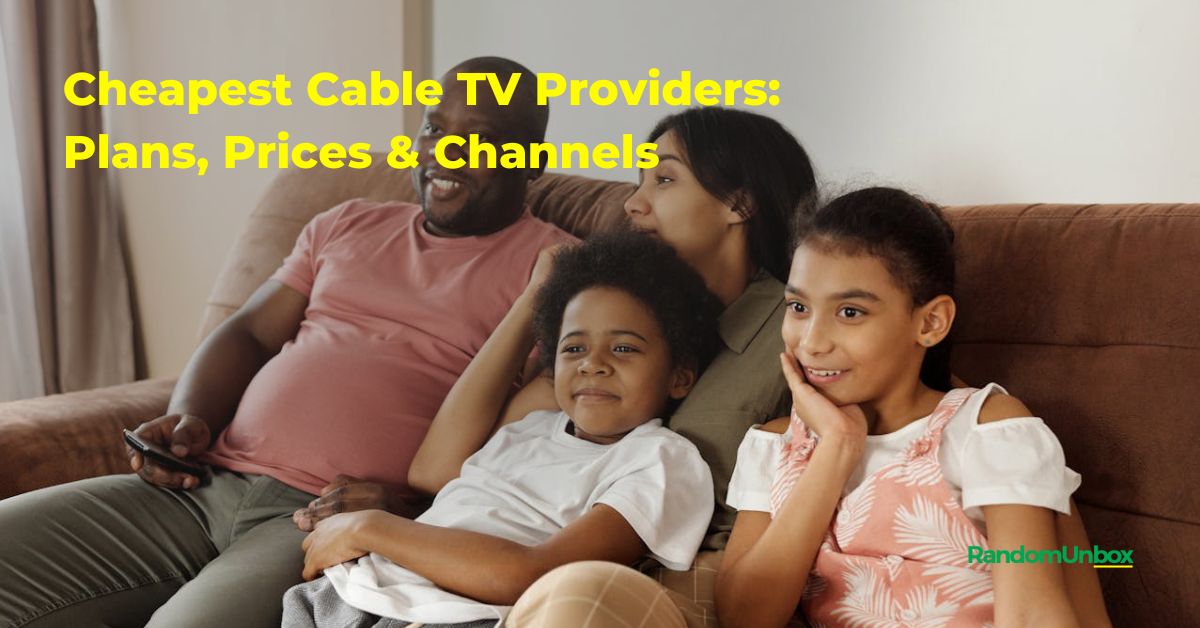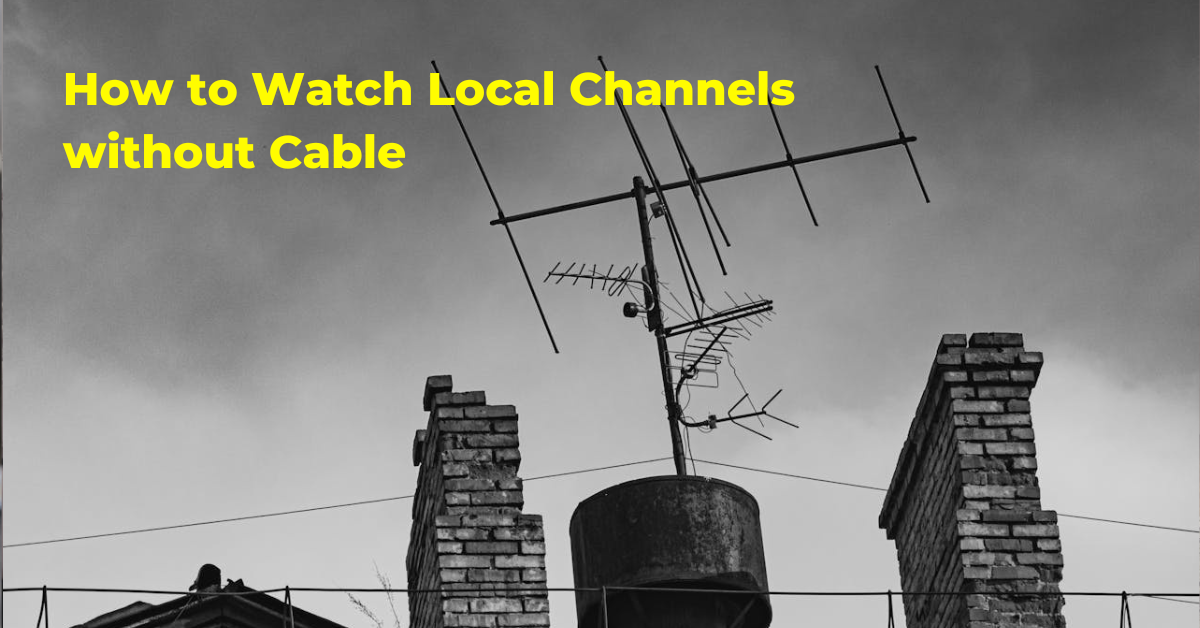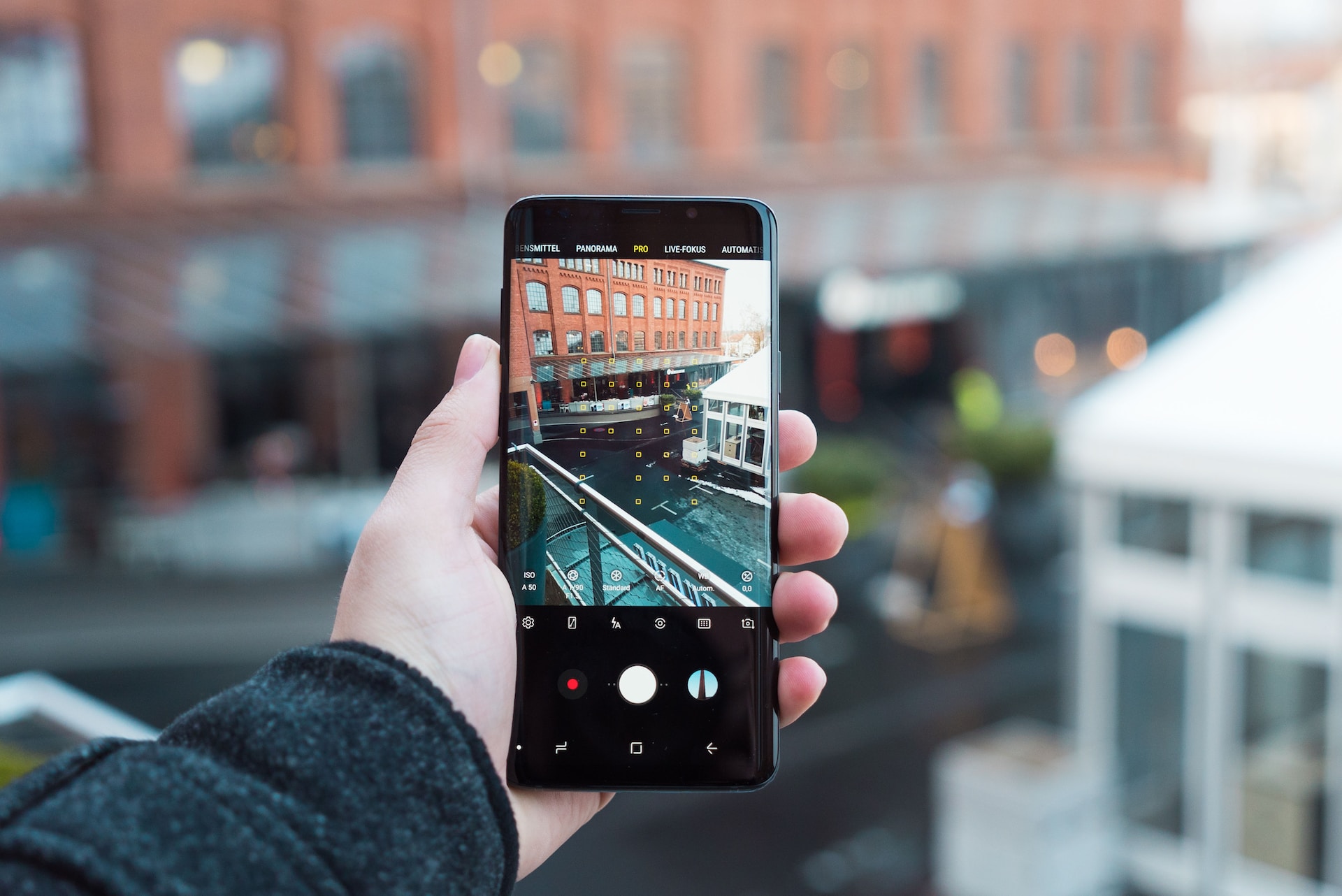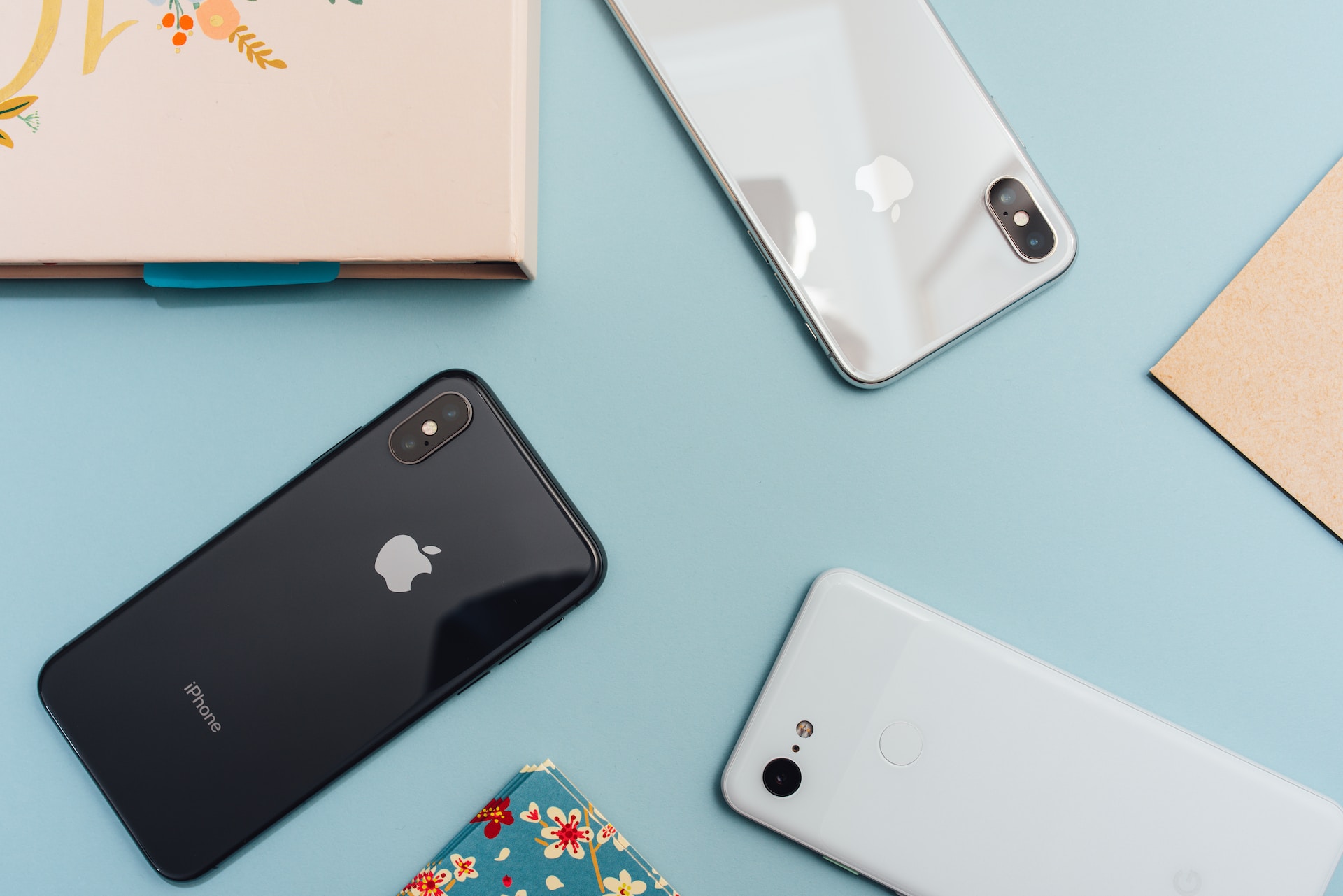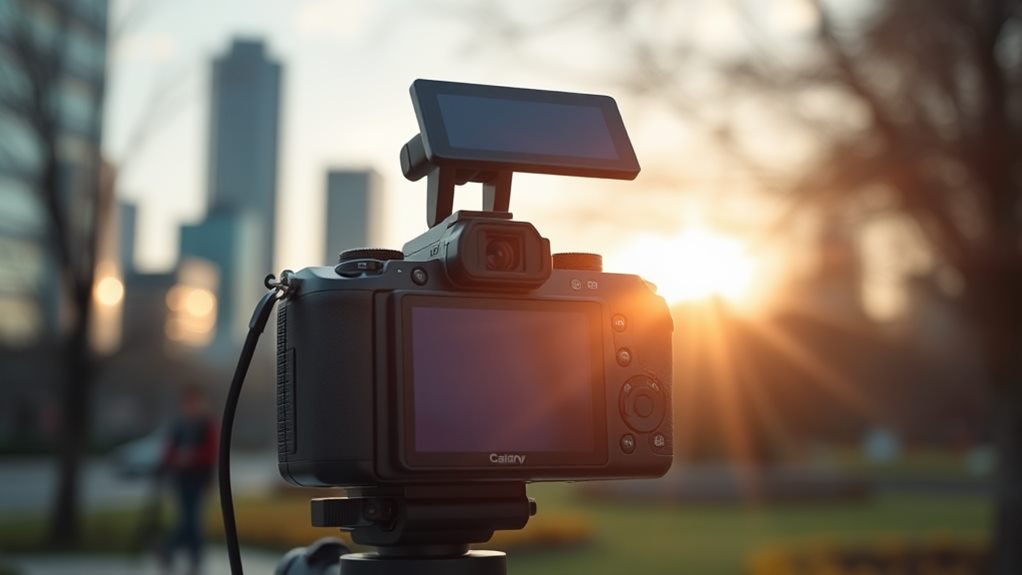Are you looking for a way to get a new smartphone without spending a fortune? Do you want to enjoy the benefits of having an iPhone 7 without breaking the bank? If so, you might be interested in learning how to get a free government iPhone 7.
A free government iPhone 7 is a smartphone provided by the federal government or a state agency to low-income individuals or households who qualify for certain assistance programs. This program aims to help people stay connected and access essential services such as health care, education, employment, and emergency assistance.
In this article, we will explain:
- What is a free government iPhone 7 and why you might want one
- How to qualify for a free government iPhone 7
- How to apply for a free government iPhone 7
- How to use your free government iPhone 7
- The advantages and disadvantages of having a free government iPhone 7
By the end of this article, you will have all the information you need to get your free government iPhone 7.
What is a free government iPhone 7 and why you might want one
A free government iPhone 7 is a smartphone that is part of the Lifeline Assistance Program. This program was created by the Federal Communications Commission (FCC) in 1985 to provide low-cost or free phone service to eligible low-income consumers. The program was expanded in 2005 to include wireless service and in 2016 to include broadband internet service.
The Lifeline Assistance Program is funded by the Universal Service Fund (USF), a system of fees collected from telecommunications companies and paid by consumers as part of their phone bills. The USF supports various programs to make communication services affordable and accessible for all Americans.
A free government iPhone 7 is a phone and a device that can help you access various online resources and services. With an iPhone 7, you can:
- Make and receive calls and texts
- Browse the web and check your email
- Use social media and messaging apps
- Take photos and videos
- Listen to music and podcasts
- Watch movies and shows
- Play games and use other apps
- Use GPS navigation and maps
- Use Siri voice assistant and other accessibility features
An iPhone 7 is also a durable and reliable device that has the following features:
- A 4.7-inch Retina HD display with a wide color gamut and 3D Touch
- A 12-megapixel rear camera with optical image stabilization and quad-LED True Tone flash
- A 7-megapixel front camera with Retina Flash
- A Touch ID fingerprint sensor
- A water-resistant and dust-resistant design
- A stereo speaker system
- A Lightning connector
- A wireless charging capability
- An iOS operating system with regular updates and security patches
As you can see, an iPhone 7 is a powerful and versatile device that can enhance your quality of life and provide many opportunities. Getting one for free from the government is a great deal that you should not miss.
However, the iPhone 7 is not the latest model of iPhone available. In fact, it was released in 2016 and has since been discontinued by Apple. This means that you might not get the best performance, battery life, or compatibility with newer apps and features. You might also miss out on some of the newer innovations that Apple has introduced in its newer models, such as Face ID, OLED display, dual or triple cameras, 5G connectivity, and MagSafe accessories.
If you want to get a more recent iPhone model, you might want to consider some of the alternatives to the free government iPhone 7. For example, you could:
- Buy a refurbished iPhone 8, iPhone X, iPhone XR, or iPhone 11 from a reputable seller. These models are still supported by Apple and offer better specs and features than the iPhone 7. You can find them at discounted prices online or in some stores.
- Trade in your old phone or device for credit towards a new iPhone. Apple and some carriers offer trade-in programs that let you exchange your old phone or device for a gift card or credit that you can use to buy a new iPhone. You can check the value of your trade-in online or in-store.
- Wait for the next iPhone SE model to be released. The iPhone SE is a budget-friendly iPhone that offers the same performance and features as the flagship models, but in a smaller and cheaper package. The first iPhone SE was released in 2016 and the second one in 2020. According to some rumors, the third iPhone SE might be released in 2023 and could have a 5G chip, a larger display, and a better camera. You can check out our article on the iPhone SE 3 for more details.
How to qualify for a free government iPhone 7
To qualify for a free government iPhone 7, you need to meet two criteria: income-based eligibility or program-based eligibility.
Income-based eligibility means your household income is at or below 135% of the federal poverty guidelines. For example, in 2023, this means that your annual income is:
- $18,210 or less for a single person
- $24,690 or less for a two-person household
- $31,170 or less for a three-person household
- $37,650 or less for a four-person household
You can check the [current federal poverty guidelines] for more information.
Program-based eligibility means that you or someone in your household participates in one of the following federal assistance programs:
- Supplemental Nutrition Assistance Program (SNAP)
- Medicaid
- Supplemental Security Income (SSI)
- Federal Public Housing Assistance (FPHA)
- Veterans Pension and Survivors Benefit
- Tribal Programs (such as Tribal Head Start, Tribal TANF, or Food Distribution Program on Indian Reservations)
You can check the [Lifeline eligibility requirements] for more information.
If you live on federally recognized tribal lands, you may also qualify for the Lifeline service. However, keep in mind that only one Lifeline service is allowed per household. This means you cannot have more than one free government phone or internet service. Additionally, to keep your service active, you must recertify your eligibility every year.
How to apply for a free government iPhone 7
To apply for a free government iPhone 7, you need to follow these steps:
- Find a Lifeline service provider in your area. You can use the Lifeline service provider finder to search by your zip code or state.
- Contact the service provider and ask about their free government iPhone 7 offer. Some service providers might offer different models or plans, so make sure you compare your options and choose the one that suits your needs and preferences.
- Fill out an application form and provide proof of your eligibility. You will need to provide your name, address, date of birth, social security number, and proof of your income or program participation. You can apply online, by mail, or in person, depending on the service provider.
- Wait for your application to be approved and your phone to be shipped or delivered. This might take a few days or weeks, depending on the service provider and the availability of the phones.
- Activate your phone and enjoy your free government iPhone 7.
How to use your free government iPhone 7
Once you receive your free government iPhone 7, you can use it like any other smartphone. However, there are some things you need to know and do to keep your phone and service active.
- You need to use your phone at least once every 30 days to avoid losing your service. You can make a call, send a text, or use data to keep your account active.
- You need to recertify your eligibility every year to continue receiving your service. You will receive a reminder from your service provider before your anniversary date. You can recertify online, by phone, by mail, or in person, depending on the service provider.
- You need to report any changes in your income, program participation, address, or phone number to your service provider within 30 days. You can report changes online, by phone, by mail, or in person, depending on the service provider.
- You need to follow the terms and conditions of your service provider and the Lifeline program. You can only have one Lifeline account per household, and you cannot transfer or sell your phone or service to anyone else.
The advantages and disadvantages of having a free government iPhone 7
Having a free government iPhone 7 has many advantages, such as:
- You can save money on your phone and service costs. You don’t have to pay for the phone or the monthly fees, and you can get unlimited talk and text and some data for free or at a low cost.
- You can stay connected and access essential services. You can communicate with your family, friends, employers, doctors, teachers, and others. You can also access online resources and services such as health care, education, employment, and emergency assistance.
- You can enjoy the features and benefits of an iPhone 7. You can use a powerful and versatile device that can do many things and enhance your quality of life.
However, having a free government iPhone 7 also has some disadvantages, such as:
- You might not get the best performance, battery life, or compatibility. The iPhone 7 is an old model that might not run as smoothly or last as long as newer models. It might also not support some of the newer apps and features that require higher specs or newer software.
- You might miss out on some of the newer innovations and improvements. The iPhone 7 does not have some of the features and technologies that Apple has introduced in its newer models, such as Face ID, OLED display, dual or triple cameras, 5G connectivity, and MagSafe accessories.
Choosing a service provider that offers free government iPhone 7
Choose a service provider. Not all service providers offer the free government iPhone 7 program, so you will need to research and compare the available options in your area. You can use the Lifeline Service Provider Search Tool at data.usac.org to find service providers near you. Some of the service providers that offer the free government iPhone 7 program are:
- Assurance Wireless: assurancewireless.com
- Q Link Wireless: qlinkwireless.com
- Safelink Wireless: safelinkwireless.com
- StandUp Wireless: standupwireless.com
When choosing a service provider, you should consider factors such as:
- The availability and coverage of their network in your area
- The quality and reliability of their service and customer support
- The features and benefits of their Lifeline plan (such as minutes, texts, data, roaming, etc.)
- The terms and conditions of their service agreement (such as fees, charges, cancellation policy, etc.)
You should also check if they have any special requirements or restrictions for getting a free government iPhone 7 (such as signing up for auto-payments, referring friends, etc.)
Troubleshooting your free government iPhone 7
If you are eligible for a free or subsidized iPhone 7 through a government program such as Lifeline, Connect America Fund, or Affordable Connectivity Program, you may encounter some issues or problems with your device. Don’t worry, most of them can be easily fixed by following these steps:
- Restart or reset your phone: Sometimes, a simple reboot can solve many glitches and errors. To restart your iPhone 7, press and hold the power button until you see the slide to power off option. Swipe the slider to turn off your phone. Then, press and hold the power button again until you see the Apple logo. To reset your iPhone 7, press and hold the power button and the volume down button together for at least 10 seconds, until you see the Apple logo. This will not erase any data on your phone, but it will force it to restart.
- Update or restore your phone’s software: Make sure your iPhone 7 is running the latest version of iOS, which may include bug fixes and security patches. To check for updates, go to Settings > General > Software Update. If there is an update available, tap Download and Install. To restore your phone’s software, you will need to connect it to a computer with iTunes or Finder. This will erase all data and settings on your phone and install a fresh copy of iOS. Before you do this, make sure you have a backup of your data. To restore your phone’s software, follow the instructions here.
- Check or change your phone’s settings: Sometimes, your phone’s settings may interfere with its performance or functionality. For example, if your phone’s battery is draining too fast, you may want to enable Low Power Mode, which reduces background activity and brightness. To enable Low Power Mode, go to Settings > Battery > Low Power Mode. If your phone’s Wi-Fi or Bluetooth is not working properly, you may want to reset your network settings, which clears any saved networks and passwords. To reset your network settings, go to Settings > General > Transfer or Reset iPhone > Reset > Reset Network Settings. You will need to enter your passcode and confirm your action.
- Clean or replace your phone’s accessories: Sometimes, the problem may not be with your phone, but with its accessories, such as the charger, cable, earphones, or case. Make sure they are clean and free of dust, dirt, or debris. You can use a soft, dry cloth to gently wipe them. If they are damaged or worn out, you may need to replace them with new ones. You can buy original or compatible accessories from Apple or other authorized retailers. Do not use cheap or counterfeit accessories, as they may damage your phone or pose a safety risk.
- Contact Apple support or visit an Apple store: If none of the above steps work, you may need to contact Apple support or visit an Apple store for further assistance. You can chat, call, or email Apple support [here]. You can also schedule an appointment at an Apple store or an Apple authorized service provider [here]. Depending on your phone’s warranty status and the nature of the problem, you may be eligible for a free or discounted repair or replacement.
Contact your service provider’s customer support
You can also contact your service provider’s customer support or visit their website or app for more help and guidance. They can assist you with issues such as:
- Activating or deactivating your service: If you have received a new SIM card or phone number from your service provider, you may need to activate your service before you can use it. You can do this by following the instructions that came with your SIM card or phone, or by contacting your service provider. If you want to deactivate your service, you may need to contact your service provider and inform them of your decision. You may also need to return your phone or SIM card, depending on your service provider’s policy.
- Changing or updating your account information: If you want to change or update your personal or billing information, such as your name, address, email, phone number, or payment method, you may need to log in to your service provider’s website or app and make the changes. You may also need to contact your service provider and verify your identity. Make sure you keep your account information up to date, as it may affect your eligibility for the government program or your service quality.
- Reporting or replacing a lost, stolen, or damaged phone: If your phone is lost, stolen, or damaged, you should report it to your service provider as soon as possible. They may be able to track, lock, or erase your phone remotely, or block your SIM card or phone number. They may also be able to send you a replacement phone or SIM card, depending on your service provider’s policy and availability. You may need to pay a fee or deductible for the replacement, or provide proof of loss, theft, or damage.
- Transferring or porting your phone number: If you want to keep your existing phone number when you switch to a new service provider or phone, you may need to request a number transfer or port. This is a process that allows you to move your phone number from one service provider to another, without changing your phone or SIM card. You may need to contact both your old and new service providers and provide them with some information, such as your account number, phone number, and PIN. You may also need to pay a fee or meet some requirements for the number transfer or port.
- Recertifying or cancelling your Lifeline service: If you are enrolled in the Lifeline program, which provides a monthly discount on your phone or internet service, you may need to recertify your eligibility every year. This is to ensure that you still meet the income or program criteria for the Lifeline program. You can recertify your eligibility online, by phone, by mail, or in person, depending on your service provider and state. If you fail to recertify your eligibility, you may lose your Lifeline benefit. If you want to cancel your Lifeline service, you may need to contact your service provider and inform them of your decision. You may also need to return your phone or SIM card, depending on your service provider’s policy.
By following these steps, you can troubleshoot any issues or problems with your free government iPhone 7 and enjoy its features and benefits.
Conclusion
In conclusion, getting a free government phone is a valuable benefit that can improve your quality of life if you meet the eligibility criteria. A free government phone can help you save money, stay in touch with your family and friends, access essential online services, and enhance your personal and professional opportunities.
To get a free government phone, you need to follow these steps:
- Check if you qualify for the Affordable Connectivity Program (ACP) or the Lifeline Program, which are federal initiatives that provide subsidized phone and internet services to low-income households.
- Compare different service providers that participate in these programs and offer free phones, such as TruConnect, Assurance Wireless, Gen Mobile, and Stand Up Wireless. You can also use the Lifeline National Verifier to find a provider in your area.
- Apply online or by mail with the provider of your choice and provide the necessary documents to prove your income or program participation. You may also need to complete an annual recertification process to keep your benefits.
- Receive your free phone in the mail or pick it up from a local store. Depending on the provider and the availability, you may get a smartphone model such as an iPhone 7 or a Samsung Galaxy.
To use your free government phone, you need to follow these tips:
- Activate your phone and set up your account with the provider. You may need to insert a SIM card or scan a QR code to activate your phone.
- Learn about the features and functions of your phone, such as the camera, the apps, the storage, and the battery. You can find the specifications and user guides for different phone models online, such as the iPhone 7 or the [Samsung Galaxy] .
- Manage your monthly plan and data usage. Depending on the provider and the program, you may get a certain amount of minutes, texts, and data for free or at a discounted rate. You can also upgrade your plan or purchase additional services if you need more.
- Troubleshoot any issues or problems with your phone or service. You can contact your provider’s customer support or visit their website for assistance. You can also check the FCC’s website for FAQs and resources about the ACP and Lifeline programs.
FAQs
Here are some frequently asked questions about getting a free government iPhone 7:
Can I get a different model of iPhone instead of an iPhone 7?
It depends on the availability and inventory of each service provider. Some service providers may offer different models of iPhones, such as iPhone SE, iPhone XR, iPhone XS, etc. However, these models may be subject to additional fees, charges, or requirements.
Can I keep my existing phone number when I get a free government iPhone 7?
You can keep your phone number when you get a free government iPhone 7. You must request number portability when applying for the Lifeline service. You will need to provide some information, such as your current phone number, account number, PIN, etc. You must also keep your current service active until the porting process is completed.
Can I upgrade or downgrade my free government iPhone 7?
It depends on the policies and options of each service provider. Some service providers may allow you to upgrade or downgrade your free government iPhone 7 to a different model or plan. However, these changes may be subject to additional fees, charges, or requirements. You should contact your service provider for more details and availability.
Can I sell or give away my free government iPhone 7?
You cannot sell or give away your free government iPhone 7. Your free government iPhone 7 is linked to your Lifeline service and account. You will lose your Lifeline service and eligibility if you sell or give away your free government iPhone 7. You will also violate the terms and conditions of the Lifeline program and your service provider. You may also face legal consequences or penalties.
Can I use my free government iPhone 7 with a different service provider?
You cannot use your free government iPhone 7 with a different service provider. Your free government iPhone 7 is locked to your service provider’s network and plan. If you try to use your free government iPhone 7 with a different service provider, it will not work or incur extra fees or charges. You will also violate the terms and conditions of the Lifeline program and your service provider.
What happens if I lose or damage my free government iPhone 7?
If you lose or damage your free government iPhone 7, you should contact your service provider as soon as possible. They will help you report or replace your free government iPhone 7. However, you may have to pay some fees or charges for replacing or repairing your free government iPhone 7. You may also have to provide proof of loss or damage, such as a police report or an insurance claim.
How long can I keep my free government iPhone 7?
You can keep your free government iPhone 7 as long as you remain eligible for the Lifeline program and recertify your eligibility yearly. You can also keep your free government iPhone 7 if you switch to a different service provider that offers Lifeline plans and free government iPhones. However, if you cancel your Lifeline service or become ineligible for the program, you must return your free government iPhone 7 to your service provider or pay its full retail price.
How can I check the status of my free government iPhone 7 application or shipment?
To check the status of your free government iPhone 7 application or shipment, you can log into your account on your service provider’s website or app or contact their customer support.
When doing so, be prepared to provide some information such as your name, phone number, email address, and tracking number. Additionally, your service provider or carrier may send you email or text notifications about the progress of your application or shipment.
How can I contact my service provider or Apple for more help or support?
If you need help or support, you can contact your service provider or Apple by visiting their website or app, calling their customer support, or visiting their local or Apple store for in-person assistance.
When contacting them, be prepared to provide some information such as your name, phone number, account number, and device model. For added convenience, you can also use their online chat or email services.
How can I give feedback or suggestions about my free government iPhone 7 or the Lifeline program?
If you have feedback or suggestions about your free government iPhone 7 or the Lifeline program, there are several ways to share them. You can contact your service provider or the FCC directly.
Alternatively, you can visit their website or app and use their online survey or feedback form. Writing a review or testimonial on their website or social media platforms is also an option. Additionally, sharing your experience or opinion with other users or potential customers on online forums or communities can be helpful.
How can I learn more about the Lifeline program and its rules and regulations?
A: You can learn more about the Lifeline program and its rules and regulations by visiting the FCC’s website at https://www.fcc.gov/lifeline. You can also visit the USAC’s website at https://www.lifelinesupport.org/ for more information and resources. Contact the Lifeline National Verifier at https://www.lifelinesupport.org/national-verifier/ for more assistance and guidance.
How can I protect my free government iPhone 7 and personal information from theft, loss, damage, or misuse?
You can protect your free government iPhone 7 and your personal information from theft, loss, damage, or misuse by following some best practices such as:
- Setting a strong passcode and using Touch ID for your phone
- Enabling Find My iPhone and Activation Lock for your phone
- Backing up your phone’s data to iCloud or iTunes regularly
- Updating your phone’s software and apps regularly
- Avoiding clicking on suspicious links or downloading unknown apps
- Using a VPN or a secure Wi-Fi network when browsing the web
- Using a case and a screen protector for your phone
- Keeping your phone in a safe and dry place
- Reporting any theft, loss, damage, or misuse of your phone to your service provider and the authorities as soon as possible
By following these best practices, you can ensure that your free government iPhone 7 and your personal information are safe and secure.
How can I recycle or dispose of my old phone or free government iPhone 7 if I no longer need it?
If you no longer need your old phone or your free government iPhone 7, you can recycle or dispose of it by following some eco-friendly methods such as:
- Donating or selling your phone to a charity or a recycling program that accepts old phones
- Trading in your phone for a credit or a gift card with your service provider or Apple
- Returning your phone to your service provider or Apple for recycling or refurbishing
- Taking your phone to an authorized e-waste collection centre or event
Before recycling or disposing of your phone, it’s important to erase all your data and settings. You can do this by following the steps at https://support.apple.com/en-us/HT201351.
How can I get more free government phones or devices for my family or household?
You cannot get more free government phones or devices for your family or household. The Lifeline program only allows one Lifeline service per household, meaning you can only get one free government phone or internet service. If you try to get more than one Lifeline service, you will violate the program’s rules and regulations and risk losing your service and eligibility.
However, you can share your free government iPhone 7 with other members of your family or household if you want to. You can also use your free government iPhone 7 as a hotspot to provide internet access to other devices such as laptops, tablets, etc. However, you should know that this may consume more data and affect your monthly plan and usage.
How can I get a free government iPad or laptop instead of an iPhone 7?
You cannot get a free government iPad or laptop instead of an iPhone 7. The Lifeline program only provides free government phones or internet service, not tablets or computers. If you want a free government iPad or laptop, you must look for other programs or sources that offer them.
Some of the programs or sources that may offer free government iPads or laptops are:
- Schools or libraries that provide iPads or laptops to students or patrons
- Non-profit organizations or foundations that donate iPads or laptops to low-income individuals or families
- Government agencies or departments that distribute iPads or laptops to eligible beneficiaries
- Online platforms or contests that give away iPads or laptops to lucky winners
You will have to research and apply for these programs or sources to get a free government iPad or laptop. However, these programs or sources may have different eligibility requirements, availability, and conditions than the Lifeline program.
How can I get more information about iPhones and Apple products?
You can get more information about iPhones and Apple products by visiting Apple’s website at https://www.apple.com/. You can also visit Apple’s support website at https://support.apple.com/ for more help and guidance. For more products and offers, you can visit Apple’s online store at https://www.apple.com/shop/. If you prefer in-person assistance and experience, you can visit an Apple store near you. Additionally, following Apple on social media platforms such as Facebook, Twitter, Instagram, YouTube, etc., can keep you updated with their latest news.


